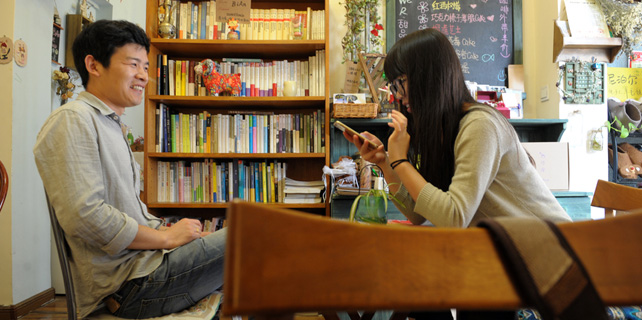Turning ideas into reality
New report shows Shanghai needs to do more to improve its talent acquisition process in order to effectively transform its scientific achievements into viable products and services
Shanghai needs to engage more people who can turn the city's achievements in scientific research into innovative products and services if it is to become a global science and technology center by 2030, according to the Annual Report on Economic Development of Shanghai which was released on Feb 21.
The report, prepared by the Institute of Economics at the Shanghai Academy of Social Sciences, stated that Shanghai's innovation output pales in comparison to its strong showing in scientific research despite it being the national leader in terms of pool of scientific talent and investments in research.
According to government statistics, more than 500,000 students received higher education in Shanghai in the 2014-2015 academic year. In addition, 27 percent of these students had received college education or above, compared to fewer than 90,000 higher education seekers in Shenzhen, which is located immediately north of Hong Kong.
Furthermore, the government subsidizes more than 8 percent of enterprise R&D expenditure in Shanghai. In Shenzhen, a city which took the lead in the country to launch reform and opening up in 1979, the local government only provides grants up to 3 percent.
Despite this disparity, statistics show that Shenzhen has been outperforming Shanghai.
Industry experts said that the current criteria used in the screening of talents who are seeking for permanent residency in Shanghai are not necessarily beneficial for talents who can turn ideas into reality. The report suggested that a special headhunting agency be set up to acquire such talents.
"The current criteria favors highly educated people with senior professional titles and isn't suitable when looking for talents in the innovation category who usually have strong market observation abilities and are good at capturing opportunities," said Di Junpeng, an assistant researcher with the institute.
"The agency should implement a market-oriented mode of operation and its decision makers must be entrepreneurs with rich innovative experience," added Di.
The report also concluded that Shanghai's over reliance on State-owned and foreign enterprises to cultivate talent with innovation skills is one of the main causes of the current situation. Experts said that most multinationals regard China only as a manufacturing base, while many State-owned enterprises aren't compelled to embrace innovation as they rely on financial allocation by the government.
To address these issues, Di suggested that the government provides more financial resources to private enterprises and learn from venture capital firms, which are more experienced in spotting market trends and managing capital, when it comes to determining which businesses to offer financial backing to.
The report added that the ceiling for the city's permanent resident population, which is targeted at below 25 million by 2040 - about 800,000 more than the current population - may hamper the city's efforts to create a large enough talent pool.
zhouwenting@chinadaily.com.cn
















